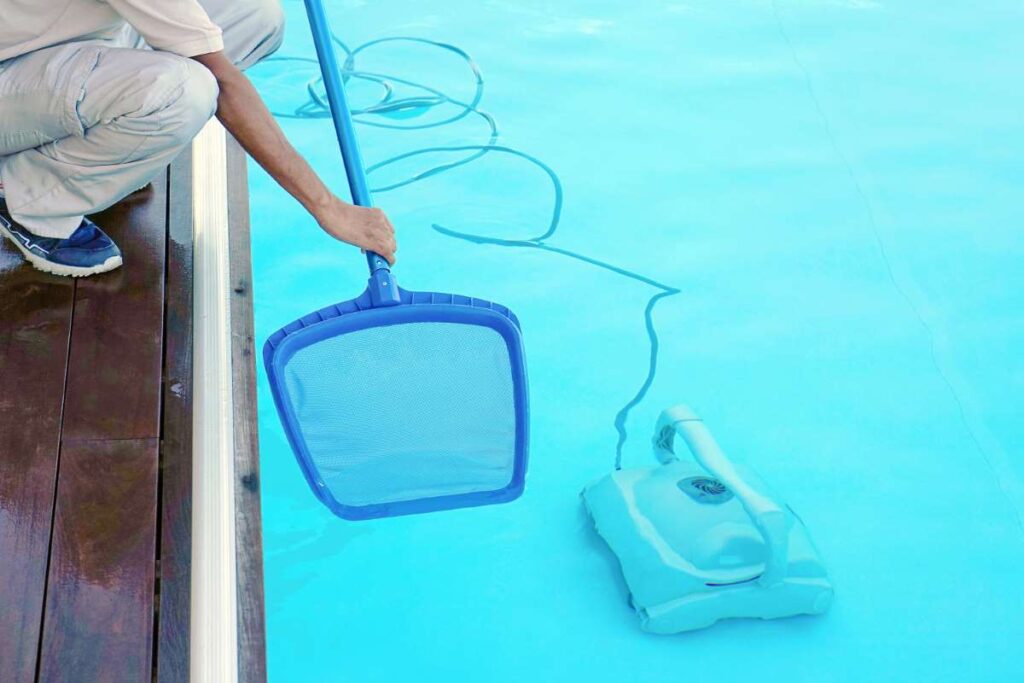Reusing Old Pool Water: Filtration and Purification Methods
Discover effective filtration and purification methods for reusing old pool water, making your pool maintenance both sustainable and economical.
In today’s environmentally conscious world, reusing resources has become more than just a trend; it’s a necessity. When it comes to pool maintenance, reusing old pool water can significantly reduce water wastage and save on costs. In this blog post, we will explore various filtration and purification methods that allow you to recycle pool water efficiently. We’ll also discuss the benefits of reusing pool water, techniques for ensuring it’s safe, and practical considerations for implementation.
The Importance of Reusing Old Pool Water
Reusing old pool water is not only beneficial for the environment but also for your wallet. Here are some key reasons why you should consider this practice:- Water Conservation: Pool maintenance can consume a considerable amount of water. By reusing old pool water, you contribute to water conservation efforts, especially in regions prone to drought.- Cost-Effectiveness: Filling a pool requires a significant water bill. Utilizing recycled water can drastically reduce these expenses, making it a cost-effective strategy for pool owners.- Environmental Impact: Reducing the amount of water drawn from local resources helps minimize ecological disruption. It also lowers the energy costs associated with water treatment and transportation.- Sustainability: In an age where sustainability is crucial, reusing pool water reflects a commitment to environmentally friendly practices.In the following sections, we will delve deeper into the methods of filtration and purification that make reusing old pool water a viable option.
Understanding Filtration Methods
To effectively reuse pool water, it is essential to understand the various filtration methods available. Filtration is the process of removing impurities and particles from the water, making it cleaner and safer for reuse. Here are some common filtration methods:- Sand Filtration: This traditional method uses a bed of sand to capture impurities as water passes through. While it is effective for larger particles, it may not remove smaller contaminants, requiring additional purification steps.- Cartridge Filtration: Cartridge filters are made of pleated fabric or paper that captures debris as water flows through them. They are easy to clean and replace, making them a popular choice for many pool owners.- DE (Diatomaceous Earth) Filtration: This advanced filtration method uses diatomaceous earth powder to trap microscopic particles. DE filters provide superior filtration compared to sand or cartridge filters, making them ideal for reusing water.- Gravity Filtration: This method relies on gravity to move water through a filter medium. It is a low-energy option that works well for smaller pools or situations where water pressure is limited.Implementing a robust filtration system is the first step in preparing old pool water for reuse. However, filtration alone may not eliminate all contaminants, making purification equally important.
Purification Techniques for Pool Water
Once your water has been filtered, the next step is purification. This process eliminates any remaining pathogens, chemicals, or impurities. Several purification techniques can be employed:- Chlorination: The most common method of pool sanitation, chlorination effectively kills bacteria and viruses in the water. Pool owners can add chlorine tablets or liquid chlorine to the water, ensuring safe reuse.- Ultraviolet (UV) Purification: UV systems utilize ultraviolet light to disinfect water by destroying the DNA of microorganisms. This method is chemical-free and effective against a wide range of pathogens, providing an excellent complement to traditional chlorination.- Ozone Treatment: Ozone is a powerful oxidizer that can eliminate contaminants without leaving harmful byproducts. Ozone generators produce ozone gas, which dissolves into the water and purifies it.- Ionization: This technique involves releasing metal ions (such as copper and silver) into the water, which have natural antibacterial properties. Ionization can significantly reduce chlorine usage while maintaining water safety.- Reverse Osmosis (RO): For those seeking the highest quality water, reverse osmosis systems can remove up to 95% of dissolved solids and impurities. Although higher in cost, RO systems provide unparalleled purification.By combining effective filtration methods with purification techniques, pool owners can ensure that reused pool water is clean, safe, and ready for use.
Practical Considerations for Reusing Pool Water
While reusing pool water is beneficial, there are practical considerations to keep in mind:- Testing Water Quality: Regular testing is crucial to ensure that the water remains safe for use. Testing kits can help you monitor pH levels, chlorine concentration, and the presence of contaminants.- Seasonal Changes: Water quality can fluctuate with seasonal changes, such as temperature and rainfall. Adjust your filtration and purification methods accordingly to maintain optimal water conditions throughout the year.- Maintenance of Filtration Systems: Regular maintenance of your filtration and purification systems is essential for optimal performance. Clean or replace filters as needed and ensure that UV and ozone systems are functioning correctly.- Local Regulations: Be aware of local regulations regarding water reuse and pool maintenance. Some areas may have specific guidelines, so it’s vital to stay compliant.- Professional Assistance: If you’re unsure about the processes or equipment needed for reusing pool water, consider consulting professionals. Companies like Superior Pool Routes offer extensive training and support, ensuring you have the knowledge and tools necessary for effective pool maintenance.Incorporating these considerations will make the transition to reusing pool water smoother and more effective.
Conclusion: Embracing a Sustainable Future with Reused Pool Water
Reusing old pool water is an essential practice for both economic and environmental sustainability. By implementing effective filtration and purification methods, pool owners can significantly reduce water wastage and costs while ensuring safe and clean water for use. As we’ve discussed, understanding the various filtration and purification techniques is crucial for implementing a successful water reuse strategy. With the right knowledge and tools, anyone can contribute to environmental conservation through proactive pool maintenance.If you’re looking to start your journey towards sustainable pool maintenance, consider exploring
pool routes for sale with Superior Pool Routes. Our unmatched training and support can equip you with the skills necessary to excel in the pool service industry while promoting eco-friendly practices. Visit us today at
Superior Pool Routes and take the first step towards a more sustainable future.



